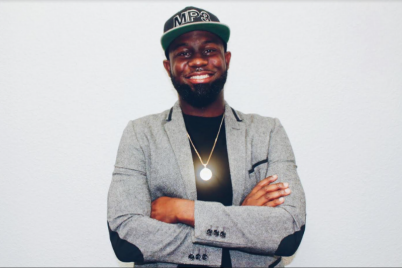ST. PETERSBURG — The USF College of Education is launching a new initiative aimed at increasing the number of male teachers of color in local elementary schools, particularly those with populations of poor or at-risk students.
The program is called “Call Me MISTER,” which stands for Mentors Instructing Students Toward Effective Role Models. Founded and based at Clemson University, the innovative program has spread to more than 25 colleges and universities nationwide.
“All children, as well as all school personnel, need to be exposed to and benefit from voices of men of color in our schools,” said Brenda Walker, associate campus dean of education at USF’s St. Petersburg campus, where the Call Me MISTER program will initially be housed. “This program will offer new opportunities to young male students of color while helping us build an important pipeline for our local elementary schools.”
While each university is encouraged to tailor the program to meet specific needs, most Call Me MISTER initiatives include:
- Tuition assistance for admitted students pursuing approved programs of study in teacher education
- An academic support system to help assure success
- A cohort system of social and cultural support
- Assistance with job placement
- The opportunity to attend a national summer conference with all Call Me MISTER participants
In exchange, graduates agree to teach in urban or low-income elementary school classrooms – at least one year for every year in which they received assistance from the program.
USF is partnering with Pinellas County Schools, who will help identify prospective applicants. Walker said her goal is to launch the program in Fall 2021 with five students. Eventually, she hopes to grow that number to 10 and expand it to the USF campuses in Tampa and Sarasota-Manatee.
Call Me MISTER is very similar to an initiative Walker created in 1995 called Project PILOT. It was the first of several initiatives that prepared African American men for urban special education teaching careers. As a result of that initiative, 31 African American men have graduated and are teaching children with special needs.
According to the National Center for Education Statistics, since 2014, ethnic and racial minorities make up more than half of the student population in U.S. public schools. But about 80 percent of teachers are white, and 77 percent are female. People of color make up about 20 percent of teachers, and just two percent are Black men.
Walker said it’s essential that all children –regardless of race or ethnic identity – are exposed to Black male teachers.
“A lot of times we say, ‘African American males need to see African American male teachers,'” Walker said. “Yes, they do, but white students need to see African American males in positive teaching settings. A lot of the time, we rely on the images that we see in the media, especially about African American males. And they’re not always portrayed positively.”
Sandra Vernon-Jackson, an education instructor on USF’s St. Petersburg campus, is developing the program’s curriculum. In addition to their regular coursework, the university will provide some specific programming for the Call Me MISTER participants. They will also be matched with mentors both within the university and from the community.
“The moment they place their feet on our campus, they will be supported and mentored,” Vernon-Jackson said. “Because ultimately we want them to be successful in the profession.”
Vernon-Jackson said the program is especially meaningful to her because a male teacher of color inspired her love of mathematics back in her native Jamaica. She hopes the Call Me MISTER participants will spark a similar fire in the students they eventually teach.
“As I start looking at my teachers that I had over the years and realizing I am now on the other end, it’s time to start thinking of passing down the baton and helping to develop and cultivate the passion of educating young minds,” she said. “There have been many shoulders I have stood on. Now it is time to allow someone else to stand on my shoulders.”








